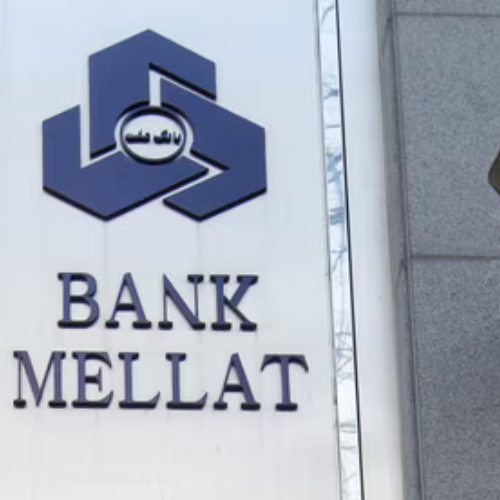Iran’s Bank Mellat has filed a lawsuit against the Bank of Korea (BOK), South Korea’s central bank, claiming damages of 100 billion won (approximately $69.87 million). The dispute stems from an alleged refusal by the BOK to allow Bank Mellat’s Seoul branch to open a specific type of account called a “monetary adjustment deposit.” These accounts are typically used by banks to manage surplus funds overnight.
The lawsuit, filed on December 6 at the Seoul Central District Court, centers around an incident that reportedly occurred on June 1, 2019. Bank Mellat claims it attempted to deposit 10 billion won in such an account with the BOK, but its request was rejected. The bank argues that this denial caused significant financial losses over time, leading to the massive damages it now seeks.
Bank Mellat insists that it was entitled to access the monetary adjustment deposit system, a facility available to other financial institutions in South Korea. By denying its application, the BOK allegedly caused the bank to miss out on interest earnings, which Bank Mellat estimates have grown into billions of won.
Bank of Korea Pushes Back
The Bank of Korea strongly denies the claims made by Bank Mellat, describing the lawsuit as unreasonable. It emphasized that the monetary adjustment deposit system is not designed for banks to generate profits but rather to help stabilize the country’s financial markets by managing liquidity.
Iranian Oil Exports Hit with US Sanctions on 35 Entities and Vessels
A representative from the BOK questioned Bank Mellat’s calculation of damages, stating that the claimed amount does not align with the system’s purpose or the typical interest rates involved. While the BOK has not yet provided a detailed rebuttal in court, its initial response suggests that it views the claims as overstated.
This lawsuit is unfolding against the backdrop of global financial complexities, as the Bank of Korea must also consider South Korea’s compliance with international sanctions. The central bank has not directly linked its actions to U.S. sanctions but may have faced challenges in processing transactions involving Iranian financial institutions due to these restrictions.
Bank Mellat’s History of Legal Battles
This is not the first time Bank Mellat has turned to South Korean courts to seek damages. In a separate case, the Iranian bank sued Woori Bank, one of South Korea’s largest commercial banks, demanding 20.2 billion won in damages. That lawsuit stemmed from the freezing of Iranian assets in South Korea under U.S. sanctions. Bank Mellat had sought the return of its deposits along with substantial interest payments dating back to 2018.
However, in that case, the Seoul Central District Court ruled in favor of Woori Bank. The court dismissed Bank Mellat’s claims, citing the impact of international sanctions and stating that Woori Bank was not liable for damages caused by the enforcement of these restrictions.
Sanctions Force Russia’s VTB Bank to Close Its Sole African Subsidiary
This latest legal action against the Bank of Korea is viewed by some financial experts as a continuation of Bank Mellat’s efforts to recover losses tied to the freezing of its assets. Critics have described the bank’s legal strategy as aggressive, with some accusing it of pursuing excessive litigation. Others, however, argue that the bank is simply fighting for its financial rights in a global environment where sanctions have significantly hindered its operations.
A High-Stakes Financial Struggle
Bank Mellat’s lawsuit highlights the broader challenges faced by Iranian financial institutions navigating international sanctions and restrictions. The sanctions, primarily imposed by the United States, have frozen billions of dollars in Iranian assets held in foreign countries, including South Korea.
South Korea, as a close ally of the United States, has had to enforce these sanctions despite the resulting strain on its financial relationships with Iran. The Bank of Korea’s refusal to open a monetary adjustment deposit for Bank Mellat may reflect these broader political and economic pressures.
As the case moves forward, all eyes are on the Seoul Central District Court to determine whether Bank Mellat’s claims will hold up. For now, the dispute underscores the intersection of financial regulations, global politics, and the struggles of a sanctioned nation’s banking system.


